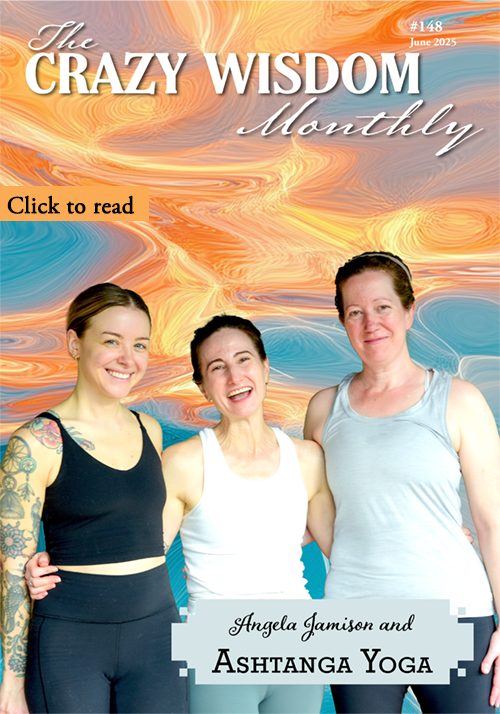By Madeline Strong Diehl
You can see the evidence of random kindness in every season—it’s not hard to find. For me, it happens a lot in winter after a heavy snowfall. More often than not, I’ll look out the front window, dreading the fact that I’ll have to shovel the walk, only to discover it’s already been cleared by a sneaky neighbor! Suddenly my claustrophobic winter dread is replaced by the joy of new snow glittering in the sunshine. The day is now extra special because someone went out of their way to make it so.
In the spring and summer, I’ve often stepped up on my porch to find that some kind soul has left a gift from her garden; maybe a bunch of flowers, or some tomatoes and basil. And in the fall, I am consistently the recipient of zucchini that are so gigantuan they seem more like an alien life form than a vegetable. Though it’s hard to say who is getting the most out of this gift—is it me, who now has to spend the week making zucchini pancakes, zucchini bread, and goulash? Or is it my anonymous friend, who no doubt wants to keep her identity a secret because she is mostly using me as a way to get rid of all her surplus zucchini?
Sometimes receiving kindness may leave you feeling like you have to reciprocate in kind for every act of kindness you receive. However, the highest, purest form of kindness is anonymous and selfless and does not seek to call attention to itself. At its very best, it is a form of performance art—it is spontaneous and random. When it comes to kindness, we need to make sure our egos are nowhere to be found—we do not want to get into competition, knowingly or unknowingly, with someone who we feel is always staying one step ahead of us—or twelve—in the acts of kindness department. We also don’t want our gifts to come from feelings of guilt or inadequacy. Feelings of obligation or competition would defeat the whole purpose.
The ethical directive to “love thy neighbor as thyself,” otherwise known as the “Golden Rule,” has been around in one form or another since around 1700 B.C. If we are to believe Wikipedia, it is formally embraced by every major religion and many indigenous cultures.
Perhaps you’re already well on your way to making the practice of random acts of kindness a guiding light in your life. Or perhaps it was once something you embraced and believed in, but you have had to cast it aside during these trying, turbulent, cynical times. If so, please, indulge me. Follow me to a place where the world of “love thy neighbor as thyself” is not just an abstract, unattainable concept—but one that is very real.
Like almost all new life, kindness can start with something as small as an egg.
Growing up, I had a wonderful role model for someone who had no trouble borrowing and lending eggs right and left—my mother. My dad was a career submariner, and he was away for six months out of every year, so my mother was often left alone with us five kids—and often in need of eggs. So I witnessed many, many examples of how my mother turned this simple act of borrowing and lending eggs into lifelong friendships.
That is why, twenty years ago, it was not hard for me to walk straight up to the front door of my new neighbor, Marilyn, and ask to borrow an egg. Thanks to the example of my mother, I recognized that this was also an opportunity to make a friend. And Marilyn rose to the occasion. She didn’t ask, “How did you vote in the last election?” Or, “What religion are you?” Or, “What is your sexual orientation?” Without losing a beat, Marilyn said, “Come in, come in! Get out of the cold! Of course I would be happy to give you an egg. In fact, I happen to have three eggs, and you can have them all if you want!” That was how this one small egg grew into a fertile and verdant friendship.
I’m sure you’ve heard how hopelessly “polarized” our society is; how it’s become nearly impossible for people of different political parties, race, ethnicity, or class backgrounds to “cross the divide.” But, at least sometimes, could “crossing the divide” be as simple as crossing the street with a casserole?
All while I was growing up, whenever my mom cooked a lasagna or a casserole for us, she cooked two so she could take the extra to someone in need. I started doing this, too, after I got married, and what I noticed right away is that there was never a day when I couldn’t think of ten people who needed such a gift.
I always thought this casserole ministry was my mother’s idea, but after she died, I inherited her cookbook, The General Foods Kitchens Cookbook (published in 1959), and I learned that, on page 362, there is a chapter called “How to Rise to the Occasion” and a section called “The Good Neighbor Policy,” which essentially lays out a job description for women of my mother’s generation. It suggests that a good neighbor can “double the recipe for (her) own family’s meal...and (take) over a casserole or a cake to the neighbor.”
Reflecting on this now, I find it highly ironic that, for all the decades while my father served on nuclear subs during the Cold War, my mother’s cookbook was exhorting her to participate in this highly potent and subversive form of socialism. But that’s beside the point. It’s so clear to me now that “The Good Neighbor Policy,” as put forth by The General Foods Kitchens Cookbook is nothing more or less than the “Golden Rule,” updated for mid-twentieth century American housewives.
It’s easy to give in to despair and believe that everything good and noble and beautiful in our society is in peril, but if you talk to people who’ve lived through the Depression, World Wars I and II, McCarthyism, and the Cold War, they will probably tell you that they have experienced and survived similar eras when they thought the madness, the suffering, and the hardship would never end. And just when they were about to give up on humanity, things got better.
What if I told you that we are not helpless? What if I even told you that we are very, very powerful—in fact, it all comes down to us?
Like any revolution, the revolution of civility and kindness can only happen one person at a time. Some of us are marchers and protestors; some of us are cooks. So if you haven’t met all your neighbors, I challenge you to deliberately run out of eggs, walk across the street, knock on your neighbor’s door, and ask for one.
If you want to be even more revolutionary, think of someone on your block who displayed political signs out in her front yard that were different from yours. Pick out the most beautiful notecard you can find, and use your very best handwriting to invite her to tea. Or, if you find out she or someone in her family is sick or has fallen on hard times, take over a casserole.
Let’s call this the Great Casserole Challenge. And please write to me and let me know how it goes.
Do you have a story about a random act of kindness, either given or received? We may share your story! Please write to our columnist at kindnessatCW@crazywisdom.net and include your contact information.



























































































































































































Today, I am joined by three representatives of these secretive hidden peoples. Will you introduce yourselves, please?